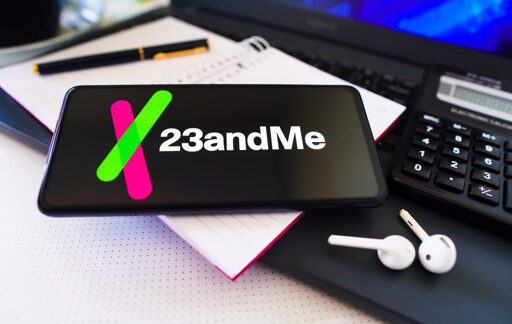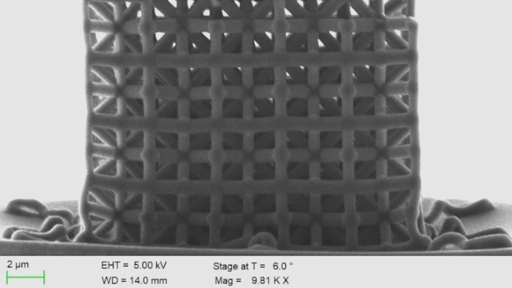Founder of 23andMe buys back company out of bankruptcy auction
-
This post did not contain any content.
-
This post did not contain any content.
Start company.
Run it into the ground.
Go bankrupt.
Buy it back.

-
Start company.
Run it into the ground.
Go bankrupt.
Buy it back.

Debts are gone might as well
-
This post did not contain any content.
Actually an interesting turn of events. Sounds like she'd been fighting hard to get it back, but they'd been fighting her on it.
Not sure what it all means, but there's something going on there. It's all very unusual.
-
Start company.
Run it into the ground.
Go bankrupt.
Buy it back.

In the capitalist system, the investors deserve all the profits because they're the ones risking everything, or something like this, I'm not an economists.
-
Actually an interesting turn of events. Sounds like she'd been fighting hard to get it back, but they'd been fighting her on it.
Not sure what it all means, but there's something going on there. It's all very unusual.
Selling off user data but has an excuse to "wasn't me" the whole situation
-
Start company.
Run it into the ground.
Go bankrupt.
Buy it back.

You missed 2. Sell (IPO)company
I’m not sure what
heshe actually did as far as divestiture, but evidently he wasn’t the current owner. I wonder to what degree unreasonable growth expectations flushed the company. -
Start company.
Run it into the ground.
Go bankrupt.
Buy it back.

So fraud? They defrauded the investors by destroying it. I bet she sold before the news the company is going under.
-
Start company.
Run it into the ground.
Go bankrupt.
Buy it back.

OP, you linked to the comments instead of the top of the article.

-
Actually an interesting turn of events. Sounds like she'd been fighting hard to get it back, but they'd been fighting her on it.
Not sure what it all means, but there's something going on there. It's all very unusual.
There's still some gift left to squeeze out. She's not giving up on a good bad thing.
-
In the capitalist system, the investors deserve all the profits because they're the ones risking everything, or something like this, I'm not an economists.
Yes, and the workers risk nothing, or something like that, I'm told.

-
This post did not contain any content.
I thought they had already agreed the sale of the genetic data to another company?
-
Yes, and the workers risk nothing, or something like that, I'm told.

I’m pretty sure the users risked a lot too for this one
-
Yes, and the workers risk nothing, or something like that, I'm told.

I get the sentiment and I'm all for workers sharing in profits, but what do they really risk by working at a company? Sure, the company can fail and they might be stuck in a bad situation, but shareholders and owners probably have it worse in that scenario, right?
-
This post did not contain any content.
Debts are gone AND now he can sell the user data with impunity! No NO, that was that OTHER GUY
-
I thought they had already agreed the sale of the genetic data to another company?
There's an article in the link.
-
I get the sentiment and I'm all for workers sharing in profits, but what do they really risk by working at a company? Sure, the company can fail and they might be stuck in a bad situation, but shareholders and owners probably have it worse in that scenario, right?
Depends, are you considering the fact that 90% of stocks are owned by the top 10% of Americans? Also are you considering that being in the top 10% means you likely have rich friends and family that could bail you out? I think black rock is going to be fine.
Most businesses aren't like my friends parents little Chinese restraunt.
To me using the, "think of the shareholders" line is silly for a reason. The biggest privilege is the privilege to make mistakes without becoming impoverished. Workers have it much harder in that respect.
Edit: grammer
-
I get the sentiment and I'm all for workers sharing in profits, but what do they really risk by working at a company? Sure, the company can fail and they might be stuck in a bad situation, but shareholders and owners probably have it worse in that scenario, right?
Remind me, who is it that gets laid off first when the line starts going down…
-
This post did not contain any content.
This roller coaster keeps on rollering
-
This post did not contain any content.
Ok so I think I'm the first person in the comments to actually click to read the article, cause I'm gonna say something I'm not seeing.
How did you get it to auto snap to the article comment section?
Didnt realize you could share that and it wouldn't default to the article.






